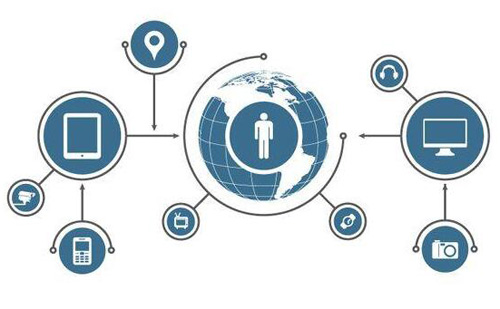Copyright ©2018 Shanghai Anto Information Technology Co., Ltd. 沪ICP备08114470号-1
News
Industrial Internet of Things sets off investment boom in China market or as an entry key
The Industrial Internet of Things is the application of the Internet of Things in the industrial field. Compared with the downturn of consumer goods, the industrial application of the Internet of Things seems to be faster. As the world's largest manufacturing country, China has the advantage of leading this change.

Industrial Internet of Things sets off a boom in investment in the Chinese market or as an entry key
At present, the development of China's Internet of Things has initially possessed a certain technology, industry and application basis, showing a good development trend. According to data from the Ministry of Industry and Information Technology, in 2014, the sales revenue of the entire Internet of Things in China reached more than 600 billion yuan. In recent years, the compound growth rate of China's Internet of Things industry has reached more than 30%, fully demonstrating its strong development momentum. CCID Consulting predicts that by 2020, the overall size of China's Internet of Things is expected to exceed 1.8 trillion yuan.
Industrial Internet of Things Investment Hot
Startups bring digital and the Internet of Things to industries with strong assets, such as manufacturing, logistics, mining, oil, utilities, and agriculture. Industrial IoT start-ups have also won the favor of investors. For example, in the third quarter of 2016, the enterprise IoT platform C3IoT received $70 million in Series D financing, and the connected car insurance company Metromile received China Pacific Insurance's $50 million investment in the Internet of Things. Security supplier BatBlue Networks has received $14 million in Series B investment, and industrial robot manufacturer Clearpath Robotics has just completed a $30 million Series B round of financing.
The industrial Internet of Things accounted for a wave of IoT investment transactions. In 2012, the Industrial Internet of Things accounted for 35% of the IoT industry's investment transactions, but by 2013 the share fell to 26%, and since then the share has continued to grow. In 2016, the Industrial Internet of Things accounted for 39% of the IoT industry investment transactions (as of the third quarter), and 154 of the 394 investment transactions were related to the Industrial Internet of Things.
The proportion of industrial Internet of Things in the Internet of Things investment is growing. In 2012, the Industrial Internet of Things accounted for only 36% of the investment in the Internet of Things industry, and its share fell to 26% in 2013. Since then, it has maintained a growth trend. In 2016, the Industrial Internet of Things accounted for 40% of the investment in the IoT industry (as of the third quarter).
China leads the industrial Internet of Things boom
The Industrial Internet involves factory machines and industrial products that enable them to communicate with each other and the surrounding environment. This market may be much larger than the consumer goods market. With millions of factories and billions of machines, China manufactures the vast majority of the world's electronics, including the many sensors and other electronic devices that will make up the backbone of the industrial IoT. China has more interconnected items than other countries, and its number will certainly soar. In addition, the government is keen to upgrade its manufacturing base and create sufficient conditions for the breakthrough of the Internet of Things in industrial applications.
GE, the world's largest industrial company, opened a so-called “Digital Innovation Square” in Shanghai in July this year, and signed agreements with Eastern Airlines and China Telecom, and became a partner with telecom equipment giant Huawei. Not only does GE believe that China is a potential hot spot for industrial Internet of Things, but large technology companies such as Siemens, Hewlett-Packard, Honeywell and Cisco are pouring in.
However, Chinese companies have their own plans and hope to dominate the global market with China's “national standard”. As the world's largest mobile communications company, China Mobile has established its own digital innovation workshop - "Cellular Internet of Things Open Lab." Local knowledge is another advantage for Chinese companies. The Sany Group, which manufactures construction equipment, has been networking machines in the factory floor since 2008. Since then, sensors have been installed on excavators and cranes for real-time monitoring and improved operational efficiency. Huawei also attaches great importance to affordable products and will enter sensor applications based on national standards.
With the maturity of the entire IoT ecosystem, the demand for industrial Internet of Things has begun to increase, and the development of China's industrial Internet of Things has gradually shifted from the government to the application demand. As far as the development status of China's industrial Internet of Things is concerned, there is a big gap compared with developed countries. It is necessary to solve the most basic problems of design and manufacturing capabilities and solve the problem of intelligence. Therefore, most enterprises in China still need Start with some infrastructure upgrades

